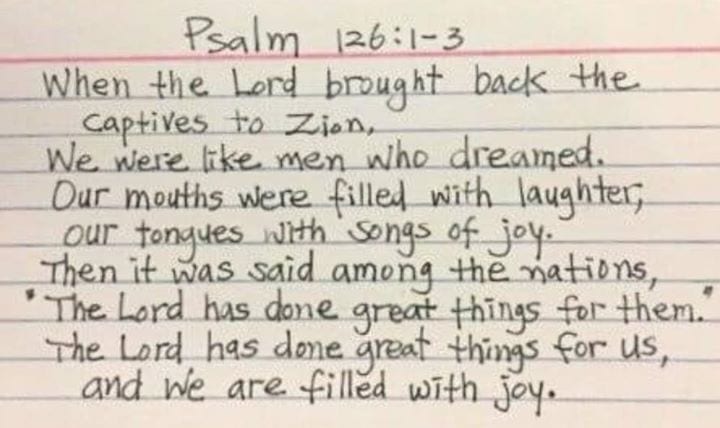Ryan and Kayla North have been married 15 years and are adoptive and foster parents living in Dallas, Texas, with their six children—four adopted and two biological. Ryan is a speaker and teacher who also heads up the podcast, One Big Happy Home. When Ryan isn’t doing ministry, he’s teaching two of his daughters guitar and doing some jamming of his own. This is his story.
Q: Who are you?
A: I am an adoptive parent of six kids and have been married to my wife, Kayla, for 15 years. We’ve done a lot of ministry in our marriage together, and we’ve been in the adoptive ministry for long time now. I’m a teacher, speaker and supporter of foster families and adoptive families. We have a podcast. But those are all things I do.
Let’s see…who am I? When I was younger I wanted to be in a band as a guitar player. Recently someone encouraged me to get back into it, so I just bought myself a new amplifier. It arrived from Amazon today actually and earlier I commandeered the dining room table to set it up. Two of my daughters want to learn so this summer I am going to spend time this summer teaching them. Music is a great outlet and I enjoy the time together with them.
Q: Your wife, Kayla, signed you both up for a meeting with a foster care agency. Tell us about the process from then on until your first placement.
A: I thought I could hold her off a couple of years. She’s always loved small children and paid for college by working as a nanny for a wealthy family. They have an adopted child from China, and I think that furthered her cause for getting involved in adoption and foster care. When we went to South Africa and came back, Kayla immediately got the ball rolling.
We’ve had 30 placements over the decade we fostered. We began fostering to adopt but after fostering a child and going through seven court hearings to adopt the child, he went to live with his great aunt. It was a few days before Christmas, and we took a break. Then, the Lord invited us to go from fostering to adopt to fostering in a traditional sense—the sense where children come in and out of our home after re-uniting with their families.
Q: What is it like being a foster parent?
A: We have a 23-year-old adult child and a five-year-old child and children of all ages in between. It’s pretty challenging but we have great relationships with all our children. There’s a strong support system around us which enables us to deal with the ups and downs of parenting in general. We have to remember that even though the kids are in foster care because someone hurt them, not everybody hurt them.
We are their hope for a safe place while many are in process of reunification or other permanent, safe and loving homes.
Q: How does trauma manifest itself in children in foster care?
A: In our experience, the first night is always difficult. They’re in a new place, and so it’s tough. Many who come to us are evasive that first night. They have a blank stare on their faces. They won’t sleep. They’ll end up wandering around the house touching things and exploring. Some get into stuff they shouldn’t. Many try to leave. As foster parents, you don’t sleep much that first night.
We had a brother and sister for about a month. The boy was three or four years old. He wouldn’t take his shoes off. Our house is pretty “Californian” in that we have a shoe basket right inside the front door. But this little boy would sleep in his shoes. He spoke only Spanish so when our babysitter, who spoke Spanish, started talking to him, she learned the little boy was looking for his grandfather and that he didn’t want to take his shoes off because he wanted to be ready to go.
Q: What can parents do for children in foster care manifesting trauma?
A: The best way to handle trauma in foster care children is for parents to get real, formidable training. Fostering is hard and it is long. If we recognize that truth, then we will understand the serious need to equip ourselves. When the newness is over, foster parents need to realize what all has come into their homes with the child in foster care.
It’s important, too, to make the child feel at home. But, as they start to feel comfortable, they may also push boundaries to see if you will still hang in there with them. No matter what issues you’re addressing, always assume behavior is an expression of need. Parents must understand that and ask themselves, “How can I meet that need?”
We may not have been adults who have the hurt the children, but we are adults. In some ways, we must take responsibility for another person’s actions in order to help the children move past the pain and onto healing.
When Jesus talks about loving our neighbors the way we love ourselves, I think foster care is a great example of making that commandment real. Fostering is a selfless love because those who foster love their neighbors’ children as much as they love themselves or their biological children.
This article originally appeared here.













